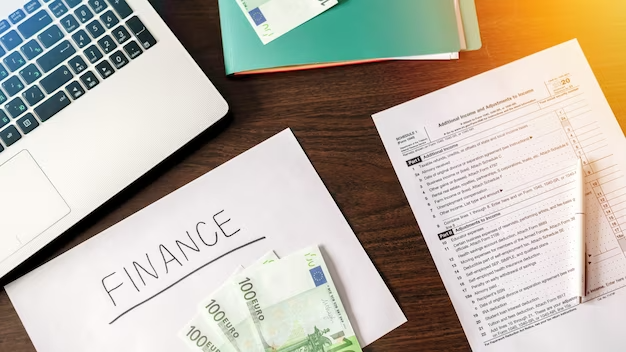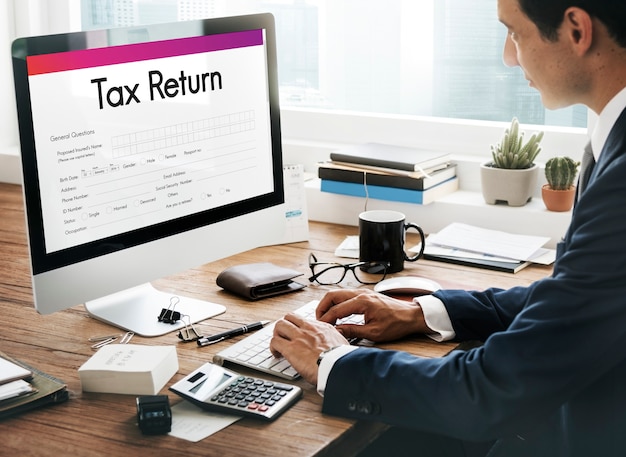As a small business owners, understanding and managing your finances can sometimes be a little challenging. However, with the right knowledge and strategic approach, navigating tax deductions becomes easier, maximizing savings.
Running a small business comes with a multitude of responsibilities, and managing your taxes is undoubtedly one of the most crucial aspects. Often, small business owners can benefit from many tax write-offs for small businesses, allowing them to deduct legitimate business expenses from their taxable income.
Understanding the various tax deductions available to you can make a significant difference in your bottom line. When you use these strategies, you make the most of small business tax deductions, ensuring you keep more of your hard-earned money.
In this blog, we will explore essential strategies that will help you uncover creative tax deductions for small business and optimize your overall tax planning.

Common Tax Deductions for Small Businesses
Are you thinking about how to maximize tax deductions? You can use strategic planning and use available deductions to optimize your tax savings. Here are some common tax deductions you must know about:
- Home Office Deduction
Are you operating your small business from a space in your home? Assuming yes, you may be eligible for the home office deduction. This deduction allows you to deduct a portion of your home expenses, such as rent, utilities, and insurance, that are directly related to your business. To claim this deduction, your home office must be used exclusively and regularly for business purposes.
- Business Vehicle Expenses
If you use your vehicle for business purposes, you can deduct certain expenses associated with its use. This includes mileage, fuel costs, insurance, and maintenance expenses. To claim this deduction, keep detailed records of your business-related vehicle usage and maintain a mileage log.
- Business Travel Expenses
When you travel for business purposes, you can deduct various expenses, such as airfare, lodging, meals, and transportation. However, it’s essential to distinguish between business travel and personal travel, as only the expenses directly related to your business activities are deductible.
- Business Supplies and Equipment
Any supplies and equipment you purchase for your business can be deductible. This includes office supplies, software, furniture, and machinery. Keep receipts and records of these purchases to substantiate your deductions.
- Health Insurance Premiums
If you are self-employed and pay for your health insurance coverage, you can deduct the premiums as an adjustment to your income. This deduction can be especially valuable for small business owners, as it helps lower their taxable income.
- Retirement Contributions
Contributions made to retirement plans, such as a SEP-IRA or Solo 401(k), are tax-deductible for small business owners. Not only do these contributions lower your tax liability, but they also help you save for your future retirement.
- Education and Training Expenses
Investing in your skills and knowledge can also be deductible. Expenses related to business-related education and training, such as workshops, conferences, and courses, can be claimed as deductions.
- Business Entertainment Expenses
While the rules for deducting business entertainment expenses have become more stringent, you can still deduct 50% of the costs incurred for meals and entertainment with clients or potential customers. Keep accurate records and note the business purpose of each expense.
- Charitable Contributions
Small business owners can also deduct charitable contributions made on behalf of their business. These contributions can include donations to qualified nonprofits or sponsorships of charitable events.
- Bad Debts
Does your business have unpaid invoices that are considered bad debts? You probably can deduct them as business losses. To claim this deduction, you must demonstrate that you made a reasonable effort to collect the debt but were unsuccessful.
Knowing about tax deductions can significantly impact your financial bottom line. Also, it’s important that you know tax credits for small business can significantly reduce the amount of taxes owed, leading to enhanced profitability.
For personalized advice and assistance with your small business tax deductions, consider consulting with a tax professional to make the most of your tax-saving opportunities.

Maximizing Deductions through Tax Credits and Incentives
Many ask how to maximize tax deductions for small business. As a small business owner, you know that taxes can be a big expense. But there are a number of tax credits and incentives available that can help you save money.
Tax credits are a dollar-for-dollar reduction in your tax liability. So, if you qualify for a $1,000 tax credit, your taxes will be reduced by $1,000. Tax incentives are not as valuable as tax credits, but they can still save you money. Tax incentives can take a number of forms, such as deductions, exemptions, and deferrals.
But, here’s how you can make the most of them:
- Understand the Basics: Tax deductions, credits, and incentives work to reduce your taxable income and overall tax liability. It’s vital to have a clear understanding of these concepts and how they can affect your business.
- Leverage Tax Credits: Tax credits for small businesses are essentially dollar-for-dollar reductions in your tax liability. They’re often more valuable than deductions because they lower your taxes directly, not just your taxable income. Investigate credits like the Work Opportunity Tax Credit, Small Employer Health Insurance Premium Credit, and others.
- Utilize Available Deductions: Maximizing tax deductions for your small business begins with keeping excellent records of all business-related expenses. From home office expenses to vehicle expenses, and even certain types of insurance, many costs can be deducted.
- Invest in Capital Assets: Investing in capital assets can also provide tax benefits. Section 179 of the IRS code allows businesses to deduct the full price of qualifying equipment and software purchased during the tax year.
- Research Local Incentives: Many states and municipalities offer tax incentives for small businesses. These could be in the form of credits, deductions, or exemptions, so it pays to explore local opportunities.
- Use Tax-Saving Strategies: There are numerous tax-saving strategies for small business owners. One popular strategy is to defer income and accelerate deductions. Another is to set up retirement plans for yourself and your employees.
Just so you know, there’re several tax credits and incentives available to small businesses. A tax credit for small business can provide significant financial relief, allowing eligible businesses to offset their tax liabilities with a direct reduction in the amount owed to the government. Some of the most common include:
- The Small Business Health Care Tax Credit: This credit helps small businesses pay for health insurance for their employees.
- The Work Opportunity Tax Credit: This credit is available to businesses that hire certain targeted groups of employees, such as veterans, ex-felons, and people with disabilities.
- The Research and Development Tax Credit: This credit helps businesses offset the cost of research and development activities.
- The Energy Efficient Commercial Buildings Tax Credit: This credit helps businesses make energy-efficient improvements to their buildings.
Small business owners can implement tax-saving strategies to make the most of available deductions and credits, improving their financial position.

Working with a Tax Professional: The Benefits of Expert Guidance
It’s easy to miss out on valuable deductions, credits, and incentives that could significantly reduce your business’s tax liability. That’s where tax professionals come in. You can get effective ways how to maximize tax deductions for small business by exploring deductions and credits applicable to your business activities with them. Here’s why it’s beneficial for small businesses to engage with tax experts:
- Understanding Tax Laws: Tax laws can be complex, and understanding them in their entirety can be a daunting task. Tax professionals dedicate their careers to understanding these laws and staying up-to-date with the latest changes, ensuring you don’t miss out on any tax benefits of owning a small business.
- Maximizing Deductions: Tax experts have a deep understanding of the specific deductions your business can take. From everyday expenses to significant capital investments, tax professionals ensure you maximize these deductions to lower your tax burden.
- Avoiding Audits: Errors or omissions in your tax returns can trigger IRS audits. A tax professional will meticulously prepare your returns, significantly reducing the likelihood of an audit. And in case of an audit, they will represent your interests before the IRS.
- Saving Time and Effort: Your time as a small business owner is invaluable. Outsourcing tax tasks to a tax professional frees you to focus on what you do best—running your business.
- Planning for the Future: Tax professionals can provide strategic advice to help you plan for the future. They can guide you on the tax implications of potential business decisions and how to leverage small business tax benefits to support your business’s growth.
Engaging with a tax professional for small businesses can be a game-changer, ultimately helping your business grow by ensuring you’re taking advantage of all available deductions, credits, and incentives. Consider seeking expert guidance today!
Year-End Tax Planning Strategies for Small Business Owners
Year-end tax planning is a crucial part of business operations, and with the right strategies in place, small business owners can optimize their tax positions. You can ask, how to maximize tax savings? Here are some strategies that can help you prepare:
- Tax planning for small business
The first step is understanding your current financial situation and future business projections. It involves careful evaluation of your income, expenses, deductions, credits, and other factors to reduce your overall tax liability.
- Maximize tax savings
Look for opportunities to defer income and accelerate deductions. For instance, if you expect to be in a lower tax bracket next year, defer income into the next tax year. On the other hand, if you anticipate being in a higher bracket, accelerate income into this year.
- Year-end tax adjustment
This might involve adjusting withholdings or estimated tax payments to avoid underpayment penalties. It may also mean making year-end purchases for necessary business equipment or supplies to increase your expense deductions.
- Business end-of-year tax checklist
Have a checklist to ensure you cover all necessary areas. It could include reviewing payroll, evaluating business expenses, checking inventory, and looking at possible deductions such as retirement contributions or health insurance premiums.
- Small business tax planning
Lastly, consider speaking with a tax professional to help guide your strategies. They can provide personalized advice based on your specific business needs and stay updated on the ever-changing tax laws.
Remember, every small business has different needs and circumstances, so what works for one might not work for another. The key is to plan ahead, stay organized, and always seek expert advice when needed.

Avoiding Common Mistakes and Red Flags in Deducting Expenses
Every small business owner loves a good tax deduction. After all, the more you can deduct, the less you owe in taxes. And when it comes to managing your small business expense deductions, there’s a lot at stake.
Getting it right can significantly reduce your tax bill, but getting it wrong can invite unwanted attention from the IRS. To help you navigate this crucial aspect of your business, here are some common mistakes and red flags in deducting expenses that you need to be aware of:
- Mixing Business and Personal Expenses: One of the most common mistakes that small businesses make is not separating business and personal expenses. This blurring of lines can lead to an IRS audit. So, always ensure that you maintain separate accounts for personal and business expenses.
- Claiming Non-Deductible Expenses: Not all business expenses are tax deductible. For example, clothing that can be worn outside of work or fines and penalties are not tax deductible. Claiming such non-deductible expenses can trigger an IRS audit.
- Excessive Deductions: Another common mistake is claiming excessive deductions. While it’s essential to claim all the deductions you’re entitled to, claiming disproportionately high deductions compared to your income can raise eyebrows at the IRS and lead to an audit.
- Lack of Documentation: It’s essential to keep detailed records of all your business expenses. Not being able to substantiate your deductions with appropriate documents is a major red flag for the IRS.
- High-Risk Deductions: Certain types of deductions are known to be IRS audit triggers. These include deductions for home office expenses, travel and entertainment expenses, and vehicle use. It doesn’t mean you can’t claim these deductions, but you should do so judiciously and ensure you meet all the requirements.
To avoid these common mistakes and red flags in deducting expenses, it’s a good idea to work with a tax professional. They can help ensure that you’re maximizing your deductions while staying within the boundaries of tax laws. Understanding and correctly applying tax-deductible business expenses can significantly reduce your tax liability and enhance the profitability of your small business. And remember, when it comes to your taxes, it’s always better to be safe than sorry!
Tips for Staying Compliant with Tax Laws and Regulations
Complying with tax laws and regulations can be nerve-wracking. But it doesn’t have to be! With a few handy tips and expert guidance, you can keep your business on the right side of the law and avoid any unnecessary complications.
Also, just remember that business expense deductions play a crucial role in reducing the overall tax liability for small business owners, providing them with financial relief and more resources to invest in their ventures. Here are some key strategies to keep you compliant:
- Stay Informed
Tax laws and regulations are dynamic and change quite frequently. Regularly checking in with reliable sources, subscribing to tax newsletters, or joining small business associations can help you stay updated.
- Understand your obligations
Depending on your business structure (sole proprietorship, partnership, corporation, etc.), your tax obligations will differ. Take the time to understand what’s required of you in terms of reporting and payments.
- Maintain accurate records
Good record-keeping is a must for tax law compliance. Keep track of all income and expenses, save receipts and invoices, and document all financial transactions. This will not only keep you organized but also help you during audits or disputes.
- File and pay on time
Late filing and payment can lead to penalties, interest, and scrutiny from the IRS. Make sure to mark all tax deadlines on your calendar and meet them.
- Use technology
Consider using tax software or financial management tools that can automate parts of the tax process, like calculating liabilities or preparing returns.
- Consult tax experts
Tax laws can be complex and difficult to interpret. Tax experts offer valuable guidance, help you take advantage of tax breaks, and ensure your business stays compliant. By taking advantage of tax incentives for small business owners, you can reinvest saved funds back into your business, driving expansion and innovation. How can you do that? Get help from those who know!
Following these tips can not only keep your business compliant but also lead to potential savings. Remember, staying tax compliant isn’t just about avoiding trouble—it’s also an opportunity to maximize your business’s financial health.
The hack is to be active in exploring tax-saving strategies for small business owners to optimize their financial position and minimize tax liabilities. So don’t just see it as a chore but as a vital part of your business strategy.
